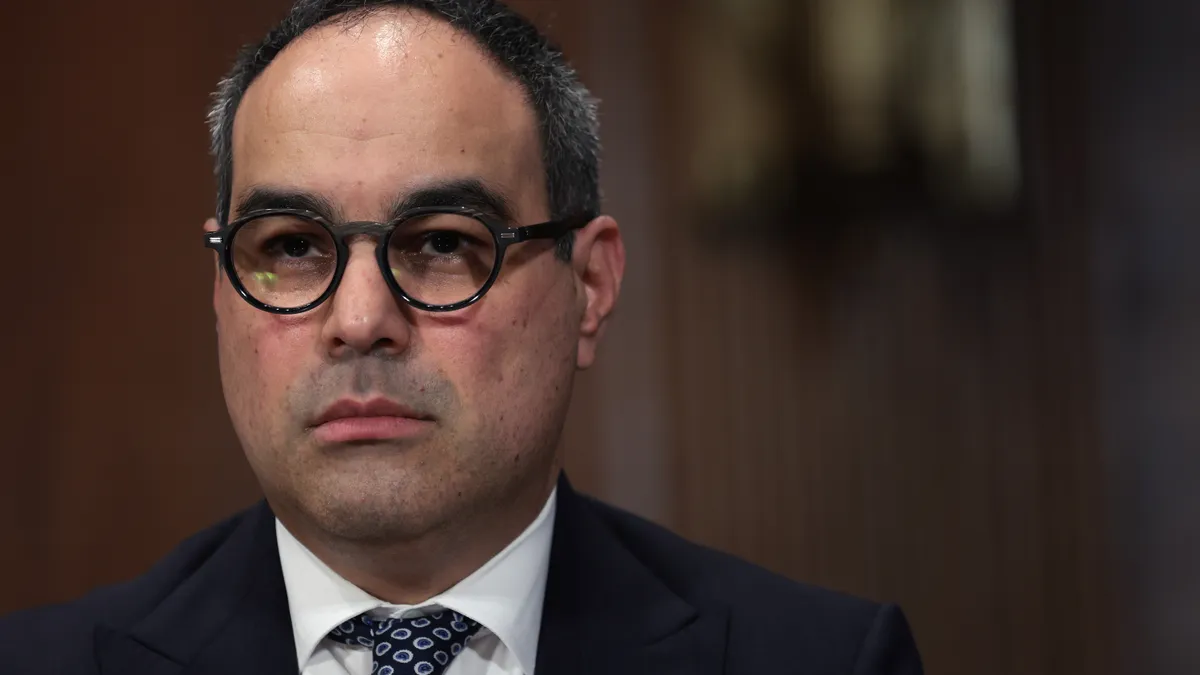Dive Brief:
- The Department of Justice’s enforcement of Section 8 of the Clayton Act has led to the resignation of two Pinterest directors from the board of Nextdoor, the agency announced on Wednesday.
- On the same day, the Federal Trade Commission cited Section 8 enforcement in requiring the removal of a director who was slated to sit on the boards of competing natural gas companies seeking to close an acquisition deal.
- The flurry of activity is the latest since the Biden administration announced it intended to reinvigorate a once-largely ignored area of antitrust law: the per se prohibition on interlocking directorates in Section 8 of the Clayton Act.
Dive Insight:
Last year the Department of Justice warned companies it was looking at the composition of boards to identify directors who also sat on the boards of competitors as part of the agency’s stepped-up effort to protect competition.
“The Antitrust Division is undertaking an extensive review of interlocking directorates across the entire economy and will enforce the law,” Assistant Attorney General Jonathan Kanter of the Justice Department’s Antitrust Division said in October.
Interlocking directorates had been an under-enforced area of antitrust law in the past, but that won’t be the case going forward, he said.
“Congress made interlocking directorates a per se violation of the antitrust laws for good reason,” he said. “Competitors sharing officers or directors further concentrates power and creates the opportunity to exchange competitively sensitive information and facilitate coordination.”
Since then, there have been 15 director resignations from 11 boards stemming from the agency’s actions.
“We remain steadfast in our commitment to protect competition by preventing interlocking directorates that we believe violate Section 8 of the Clayton Act,” Deputy Assistant Attorney General Andrew Forman of the Justice Department’s Antitrust Division said in announcing the Nextdoor resignations.
The announcement doesn’t identify the directors who resigned but news reports have identified them as Andrea Wishom, president of Skywalker Holdings, and Leslie Kilgore, a former marketing executive at Amazon and Proctor & Gamble who sits on multiple company boards.
Although they’re off the Nextdoor board, they’re remaining on the Pinterest board. DOJ said the directors resigned effective Aug. 1 “without the directors or either company admitting liability.”
Nextdoor is a social media platform for neighbor-to-neighbor engagement. Pinterest is a social media network and image sharing service.
Gas sector competition
The FTC action is the first in 40 years in which the agency has moved against an interlocking directorate.
In the settlement agreement the agency negotiated, Quantum Energy Partners’ CEO or an alternative won’t take a board seat with EQT Corp., the largest natural gas producer in the U.S., after Quantum becomes one of its largest shareholders as part of EQT’s acquisition of two Quantum companies.
EQT wants to buy THQ Appalachia, a big natural gas producer, and THQ-XcL, an affiliated transportation company. Both companies are owned by Quantum, a private equity firm founded by Wil VanLoh, who serves as its CEO.
As originally structured, Quantum’s CEO or an alternative was to take a seat on EQT’s board, but in the agreement the companies entered into with the FTC to get its antitrust approval of the deal, Quantum won’t get a board seat. Quantum also agreed to divest its EQT shares, among other changes it agreed to.
“As originally structured, this deal would have resulted in an illegal interlocking directorate, facilitated the exchange of confidential and competitively sensitive information, and otherwise stifled competition in the Appalachian Basin,” Nathan Soderstrom, acting deputy director of the FTC’s Bureau of Competition, said in announcing the deal.
The FTC says the deal is an example of an innovative way to prevent the anticompetitive sharing of information that would have come from having a director on both boards, among other concessions made.
It “prevents entanglements between the two companies and the exchange of confidential, competitively sensitive information,” the FTC says.
As the first enforcement action against board directors in decades, it also shows the Department of Justice isn’t the only antitrust agency taking a hard look at interlocking directorates.











